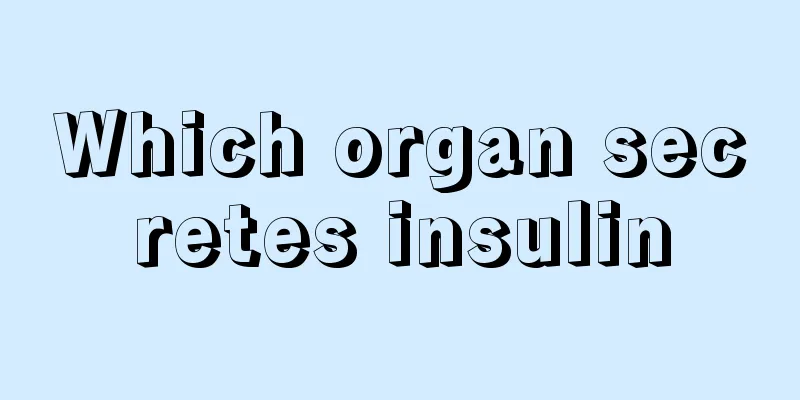Which organ secretes insulin

|
Although the word insulin is not unfamiliar, many people do not know which organ in the body secretes insulin. In fact, this substance is secreted by the substances in the pancreas. If the secretion is abnormal, it will cause abnormal reactions in the insulin index during the examination, which will cause the occurrence of disease. Insulin is a protein hormone secreted by pancreatic beta cells in the pancreas in response to endogenous or exogenous substances such as glucose, lactose, ribose, arginine, glucagon, etc. Insulin is the only hormone in the body that lowers blood sugar, while promoting the synthesis of glycogen, fat and protein. Exogenous insulin is mainly used to treat diabetes. The rate of insulin biosynthesis is affected by plasma glucose concentration. When blood glucose concentration increases, the proinsulin content in β cells increases and insulin synthesis accelerates. Insulin is synthesized in the pancreatic β cells. Insulin has a molecular weight of 5700 and is composed of two amino acid peptide chains. The A chain has 21 amino acids and the B chain has 30 amino acids. There are two disulfide bonds between the AB chains. Insulin and C-peptide are secreted into the blood in equal molecules. Patients who are clinically treated with insulin have insulin antibodies in their serum, which affect the determination of blood insulin levels by radioimmunoassay. In this case, the state of endogenous insulin secretion can be understood by measuring plasma C-peptide levels. Influencing factors The secretion of insulin in the body is mainly affected by the following factors: Plasma glucose concentration Plasma glucose concentration is the most important factor affecting insulin secretion. Following oral or intravenous administration of glucose, insulin release occurs in a biphasic response. In the early rapid phase, insulin in portal vein plasma reaches its maximum value within 2 minutes and then drops rapidly; in the delayed slow phase, plasma insulin level gradually rises again after 10 minutes and continues for more than 1 hour. The early rapid phase shows the release of stored insulin triggered by glucose, and the delayed slow phase shows the synthesis of insulin and the conversion of proinsulin to insulin. After eating protein-rich foods, the amino acid concentration in the blood increases and insulin secretion also increases. Arginine, lysine, leucine and phenylalanine all have a strong effect in stimulating insulin secretion. The increase in gastrointestinal hormones after meals can promote insulin secretion. For example, gastrin, secretin, gastric inhibitory peptide, and intestinal vasoactive peptide all stimulate insulin secretion. The autonomic nervous system function state promotes insulin secretion when the vagus nerve is excited, and inhibits insulin secretion when the sympathetic nerve is excited. |
<<: Criteria for judging cardiac and respiratory arrest
>>: What is the storage temperature of insulin
Recommend
What is the best way to restore astigmatism?
With the fast pace of social life, people are und...
Is male breast cancer more dangerous? 3 dangers of male breast cancer
Breast cancer is the most common malignant tumor ...
How to take good care of bladder cancer in life
Bladder cancer is one of many tumor diseases. Mos...
Newborns don’t sleep during the day
Sleep is very important for newborn babies. Norma...
How to quickly release milk after childbirth
After giving birth, the first thing a pregnant wo...
The dangers of hair transplantation, choosing the right hospital is very important
Nowadays, there is too much pressure. Many people...
Can ginger be used to wash hair for a long time?
When there is a problem with the scalp or hair, t...
The benefits of placing bamboo cypress indoors to people
There are many benefits of placing bamboo cypress...
Is small cell lung cancer contagious?
Is small cell lung cancer contagious? Small cell ...
Can hamburgers be put in the refrigerator
Hamburgers, an imported fast food, have long been...
What to do if you have a loss of taste in your mouth and swollen and painful gums during radiotherapy for nasopharyngeal cancer
What should I do if I have a loss of taste in my ...
How to effectively treat eardrum perforation
Eardrum perforation is very common in clinical pr...
Snake gall herpes sequelae
Herpes is a skin disease, mostly caused by viral ...
What to do if a tooth crack hurts?
When you have painful tooth cracks, you must unde...
How to remove hard bumps from ear holes
Many girls like to wear earrings, but to wear ear...









